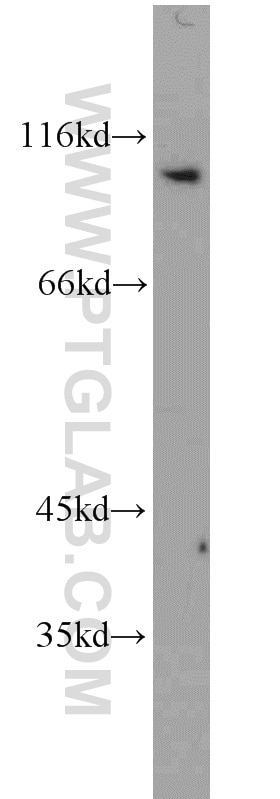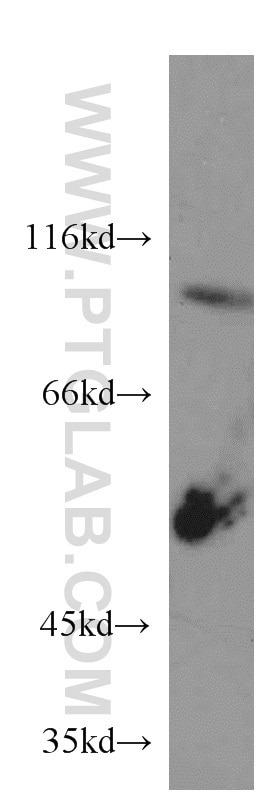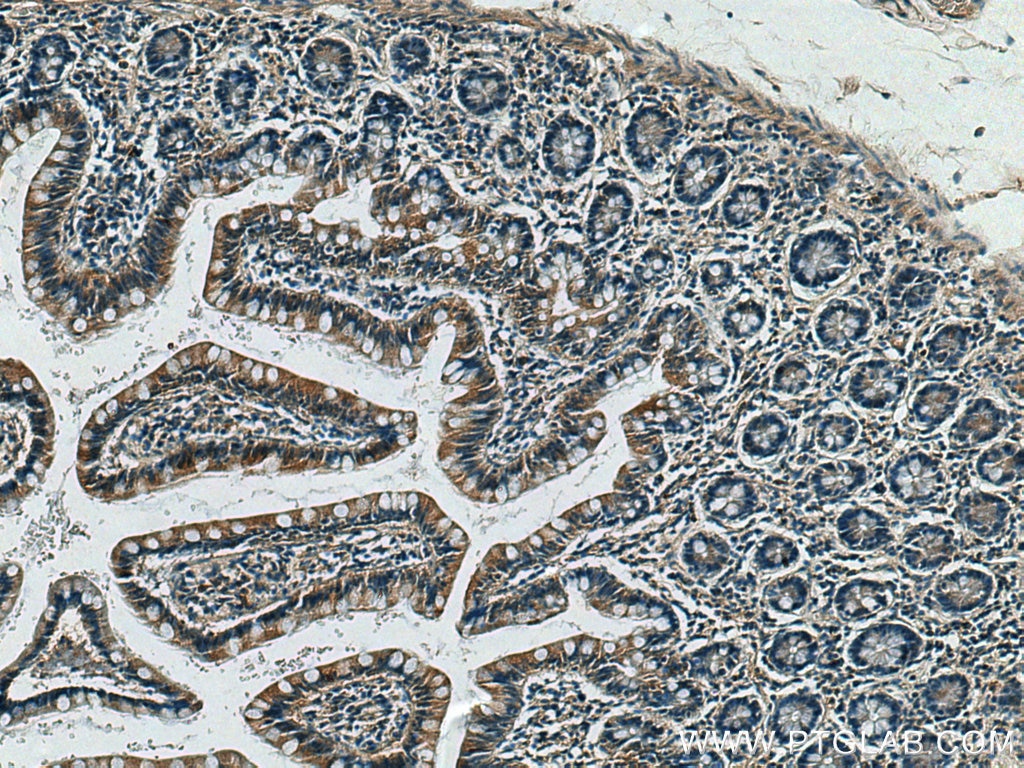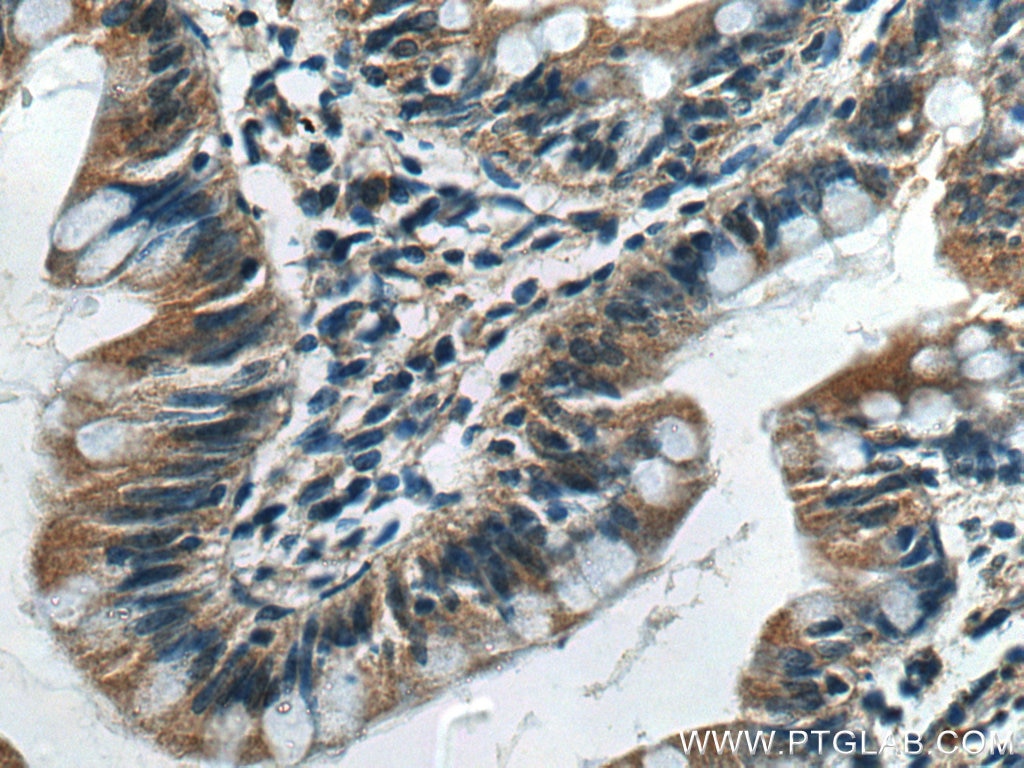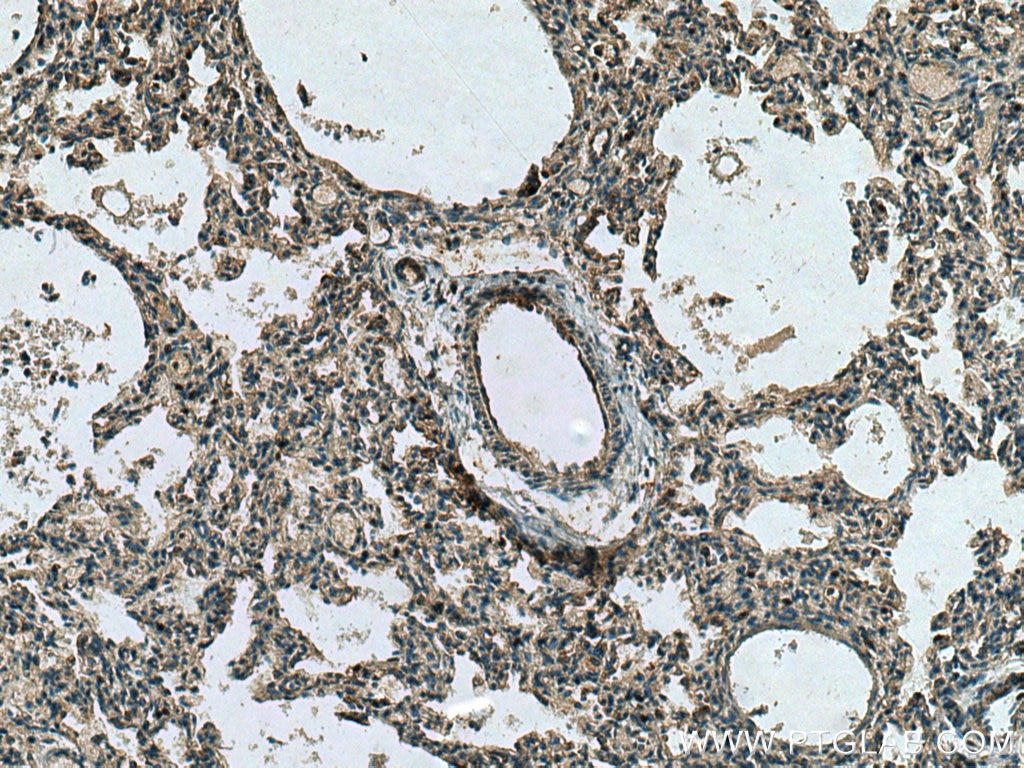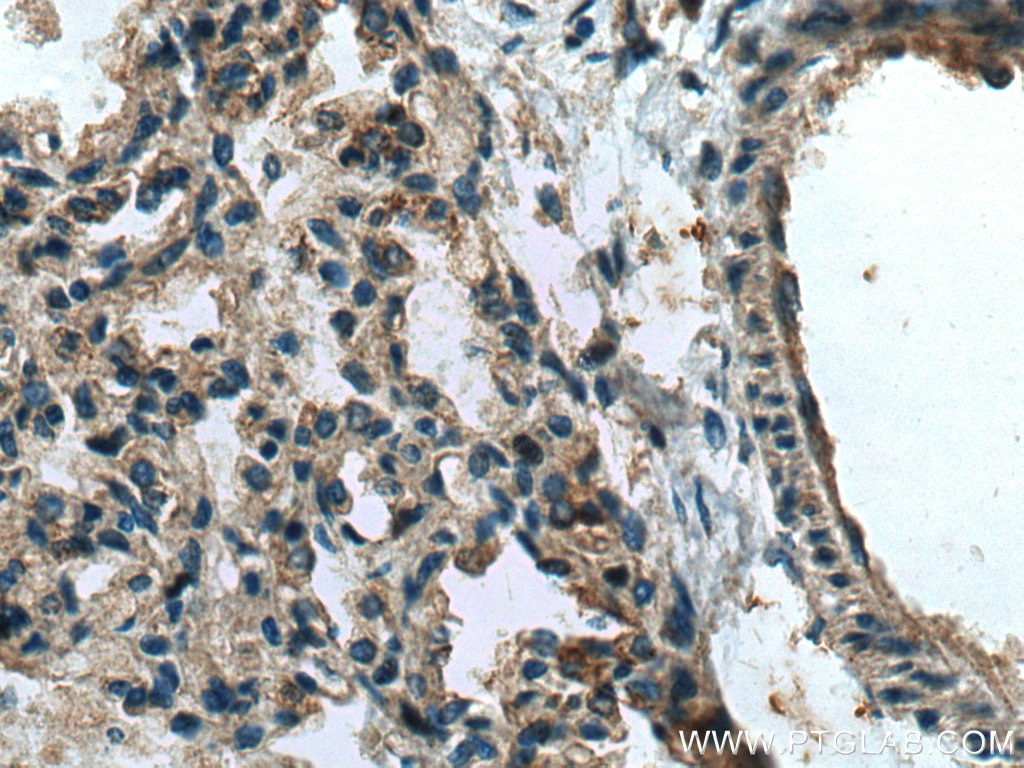Anticorps Polyclonal de lapin anti-CX3CL1
CX3CL1 Polyclonal Antibody for WB, IHC, ELISA
Hôte / Isotype
Lapin / IgG
Réactivité testée
Humain et plus (1)
Applications
WB, IHC, ELISA
Conjugaison
Non conjugué
N° de cat : 10108-2-AP
Synonymes
Galerie de données de validation
Applications testées
| Résultats positifs en WB | cellules PC-3, tissu cérébral humain |
| Résultats positifs en IHC | tissu d'intestin grêle humain, tissu pulmonaire humain il est suggéré de démasquer l'antigène avec un tampon de TE buffer pH 9.0; (*) À défaut, 'le démasquage de l'antigène peut être 'effectué avec un tampon citrate pH 6,0. |
Dilution recommandée
| Application | Dilution |
|---|---|
| Western Blot (WB) | WB : 1:500-1:2000 |
| Immunohistochimie (IHC) | IHC : 1:200-1:800 |
| It is recommended that this reagent should be titrated in each testing system to obtain optimal results. | |
| Sample-dependent, check data in validation data gallery | |
Applications publiées
| KD/KO | See 1 publications below |
| WB | See 10 publications below |
| IHC | See 9 publications below |
Informations sur le produit
10108-2-AP cible CX3CL1 dans les applications de WB, IHC, ELISA et montre une réactivité avec des échantillons Humain
| Réactivité | Humain |
| Réactivité citée | Humain, souris |
| Hôte / Isotype | Lapin / IgG |
| Clonalité | Polyclonal |
| Type | Anticorps |
| Immunogène | CX3CL1 Protéine recombinante Ag0161 |
| Nom complet | chemokine (C-X3-C motif) ligand 1 |
| Masse moléculaire calculée | 42 kDa |
| Poids moléculaire observé | 90-100 kDa |
| Numéro d’acquisition GenBank | BC001163 |
| Symbole du gène | CX3CL1 |
| Identification du gène (NCBI) | 6376 |
| Conjugaison | Non conjugué |
| Forme | Liquide |
| Méthode de purification | Purification par affinité contre l'antigène |
| Tampon de stockage | PBS with 0.02% sodium azide and 50% glycerol |
| Conditions de stockage | Stocker à -20°C. Stable pendant un an après l'expédition. L'aliquotage n'est pas nécessaire pour le stockage à -20oC Les 20ul contiennent 0,1% de BSA. |
Informations générales
Chemokines direct the trafficking of white blood cells in immune surveillance, playing a key role in inflammatory and infectious diseases such as AIDS. The human CX3C chemokine carries the chemokine domain on top of an extended mucin-like stalk. CX3CL1 is synthesized as a 50-75 kDa precursor and undergoes glycosylation to yield two mature forms: a 100 kDa cell membrane bound form and an 85 kDa soluble form which is released from the cell surface. The soluble CX3C chemokine has potent chemoattractant activity for T cells and monocytes, and the cell-surface-bound protein, which is induced by primary proinflammatory signals in activated primary endothelial cells, promotes strong adhesion of those leukocytes.
Protocole
| Product Specific Protocols | |
|---|---|
| WB protocol for CX3CL1 antibody 10108-2-AP | Download protocol |
| IHC protocol for CX3CL1 antibody 10108-2-AP | Download protocol |
| Standard Protocols | |
|---|---|
| Click here to view our Standard Protocols |
Publications
| Species | Application | Title |
|---|---|---|
Mol Cancer YTHDF2 in peritumoral hepatocytes mediates chemotherapy-induced antitumor immune responses through CX3CL1-mediated CD8+ T cell recruitment | ||
Blood Proteomics analysis of Hodgkin lymphoma: identification of new players involved in the cross-talk between HRS cells and infiltrating lymphocytes. | ||
J Pathol Current smoking-specific gene expression signature in normal bronchial epithelium is enhanced in squamous cell lung cancer. | ||
Mol Oncol Platelets are recruited to hepatocellular carcinoma tissues in a CX3CL1-CX3CR1 dependent manner and induce tumour cell apoptosis. | ||
Int J Biol Sci Long noncoding RNA SH3PXD2A-AS1 promotes colorectal cancer progression by regulating p53-mediated gene transcription. | ||
Eur J Med Res HCC-derived CX3CL1 affects hepatocellular carcinoma prognosis and CX3CR1 + MDSC infiltration |
